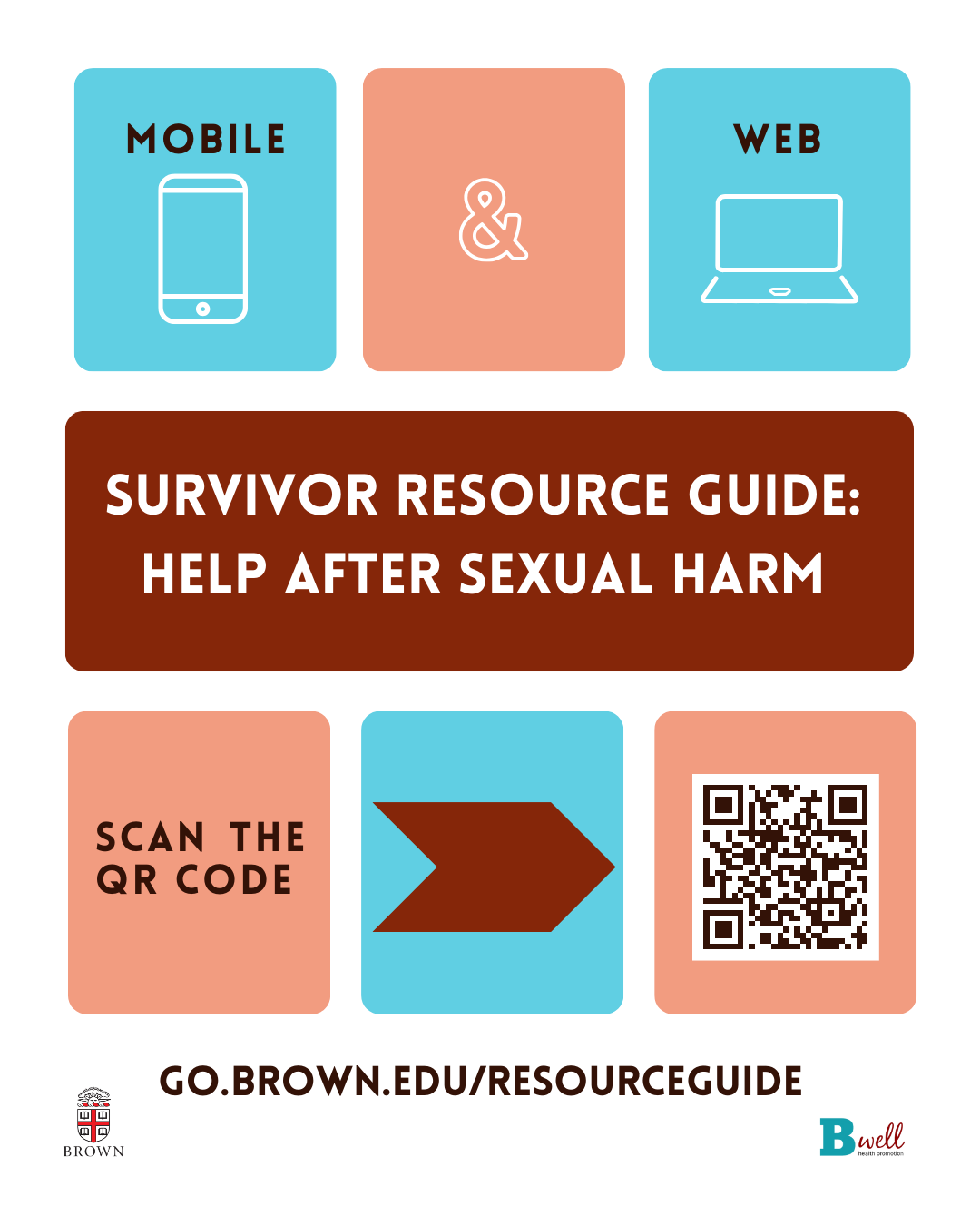Many people have questions about the dynamics of consent when they, and/or their partners, have been drinking or using drugs. There are a few realities we must face when it comes to alcohol, drugs, and consent:

Sexual Assault & Dating Violence
Sexual assault, sexual harassment and dating violence are hidden but widespread problems. Chances are that you or someone you know has been affected by these problems. Anyone, regardless of gender, race or education can be a victim. Because of the shame and fear that many victims experience, it may be difficult to reach out and get help. This website can help you learn more about sexual assault, sexual harassment and dating violence. Use the tabs above in the Sexual Assault and Dating Violence section to find information about legal definitions, resources for survivors of violence, suggestions on how to respect the rights and wishes of partners, and ways you can look out for the health and safety of friends and loved ones.
Brown University Sexual Assault Response Line (24/7): 401-863-6000
How to Get Help
Submitted by [email protected] on Sep 15, 2023 - 11:48 am
“No one is ever just an individual. You exist within spaces all the time, and you share some responsibility for what happens there.” Shawna Potter, Making Spaces Safer
Students across the country are talking about the Red Zone. Click on the content below to learn what it is, how it occurs, and what you can do about it.
TRIGGER WARNING: This resource contains information about sexual violence, prevalence rates, and tactics used to perpetrate harm.
The Culture of Respect Collective: Beginning in 2021, Brown’s two-year partnership with NASPA's (National Association of Student Personnel Administrators) Culture of Respect's Collective engages the university in rigorous self assessment and collaborative strategic planning to take targeted steps towards addressing sexual and gender-based violence on campus.
SEXUAL VIOLENCE: A sexual act committed against someone without freely given consent. Sexual, gender-based, interpersonal and relationship violence are often used interchangeably to include behavior motivated by gender & power that occurs without consent.
SEXUAL ASSAULT: Any sexual activity that happens without consent, including penetration, sexual touching, or removal of safer sex methods. Power differences, based on identity and role, can contribute to coercion. Consent for one sexual activity does not imply consent for others.





